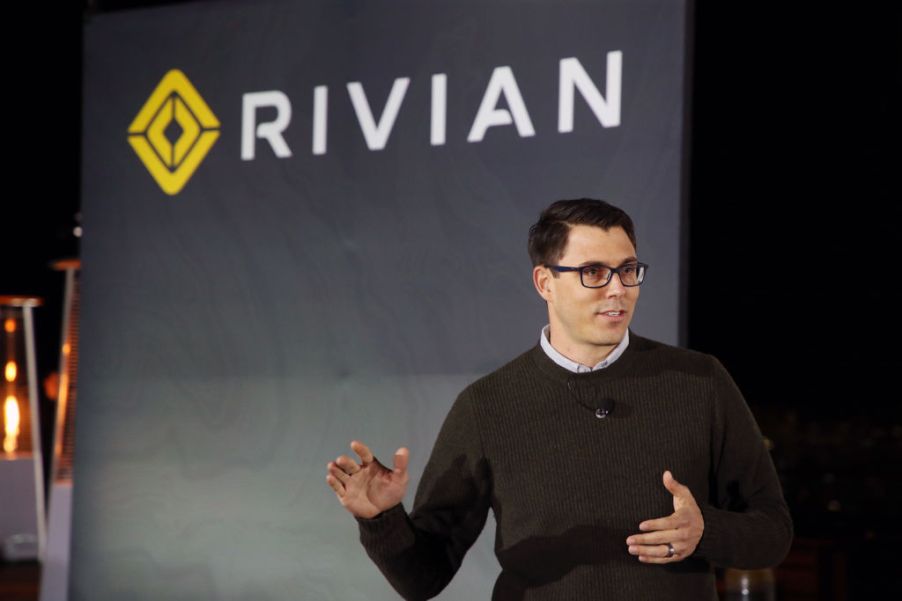
What Does Amazon’s Investment in Rivian Mean for the Electric Truck Industry?
Electric trucks are on the way, and a small start-up company called Rivian has Tesla rushing to release a truck this November.
Most automakers didn’t think Rivian was a threat at first, but the global entity Amazon saw potential in Rivian. According to Extreme Tech, Amazon has purchased 100,000 electric trucks from Rivian. Now other automakers are sitting up and taking notice.
What is Rivian?
Rivian seemed to appear out of nowhere and is quickly upsetting the balance. Elon Musk’s company was the only major electric automaker that focused solely on electric vehicles, and that’s exactly how Musk liked it. Then Rivian began to slowly appear in auto blogs, and now has the full attention of one of the biggest corporations in the world.
So what is the backstory behind this underdog?
In 2009, an MIT and RPI grad by the name of RJ Scaringe decided to start a company that would build an electric sports coupe.
If you’re scratching your head and trying to figure out if we got our dates wrong because we’re really referring to a young Elon Musk, we’re not confused. The start-up stories are very similar.
By 2011, Scaringe switched his focus to autonomous EVs. Later, Rivian began to put more focus on electric vehicles. Eight years later, Rivian made a bold move.
According to Extreme Tech, “In 2017, Rivian bought a manufacturing plant in Normal, IL, previously used by Mitsubishi and effectively a near-production-ready facility, much as Tesla purchased the former NUMMI car plant in California.”
It was then that Rivian finally released its first two vehicles. Breaking away from the Tesla playbook, Rivian skipped the electric sports coupe that Scaringe initially dreamed of. Instead, Extreme Tech reports that Rivian released “a five-passenger pickup (R1T) truck and seven-passenger SUV (R1S).”
It was yet another bold move since the electric vehicle market, which is quickly becoming saturated with sedans and coupes, has yet to focus on trucks and SUVs.
Several major automakers have been kicking the idea of electric trucks and SUVs for months, but no one was taking any serious action. No one except a tiny startup company that saw this as a huge opportunity, anyways.
It allowed Rivian to enter a field with zero serious competitors and stake out its own turf. Tesla and Ford are now scrambling to release electric trucks, making it clear that the tiny Rivian company is making some rather huge waves.
Why is Amazon interested in electric trucks
It’s no secret that Amazon helps small companies all over the world, but this is a big move even for the global shopping entity.
The New York Times reports that Amazon invested in Rivian, giving the small start-up $7 million. It appears that this was step one in building what could be a very lucrative partnership for both companies.
It all began with the Paris Accords.
Extreme Tech reports, “The Paris Agreement, or climate accord, is a 2015-2016 negotiation among 196 countries to limit the increase in global temperatures to 2 degrees Centigrade above pre-industrial levels.”
President Donald Trump decided to pull America from the accords, but as Extreme Tech points out, American companies are not hindered from abiding by the accords if they choose to.
Given this information, it only makes sense that Amazon would want to reduce emissions by going with electric vehicles. It makes even more sense to go with a start-up company that will give you the VIP treatment.
When you add up all the money Rivian stands to gain from this, the order equals approximately $10 billion.
The LA Times reports that this has forced other automakers to acknowledge that Rivian is the real deal, and isn’t going anywhere anytime soon.
Will it affect consumers?
Yes, and in a good way. This will directly affect consumers in a number of ways. Amazon wants to start same-day deliveries, meaning you’ll get your product the same day you order it.
To accomplish this, Amazon will open local warehouses so that products can ship and arrive the same day as it was purchased.
This means more jobs. For some communities that don’t have a strong economy, it could be a game-changer.


